Waterglass Eggs Experiment (6 month update)
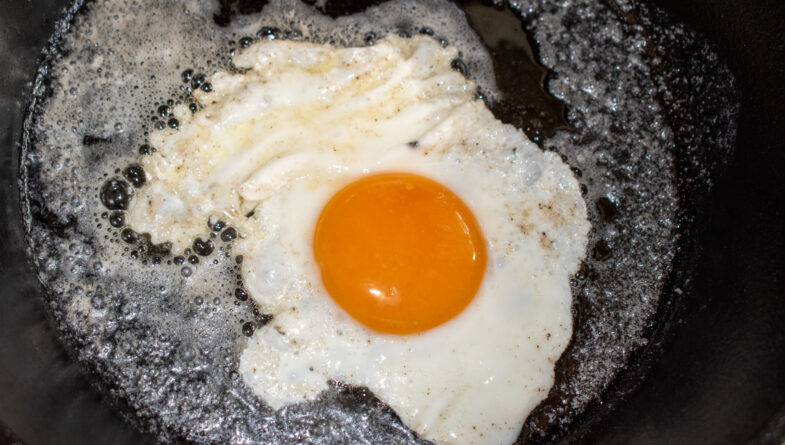
Six months ago when we started to be flush with eggs again with the arrival of warmer weather, we started on some experiments with waterglass eggs. Read the initial post here! There are so many different “do’s” and “don’ts” associated with the waterglassing that we had wanted to get a better idea for our own preservation measures about what really matters and what doesn’t when it comes to waterglassing eggs to make them last into the off-season months. We did an initial test at 3 months and today it was time for our six month check-in!
6 Month Waterglass Checkpoint
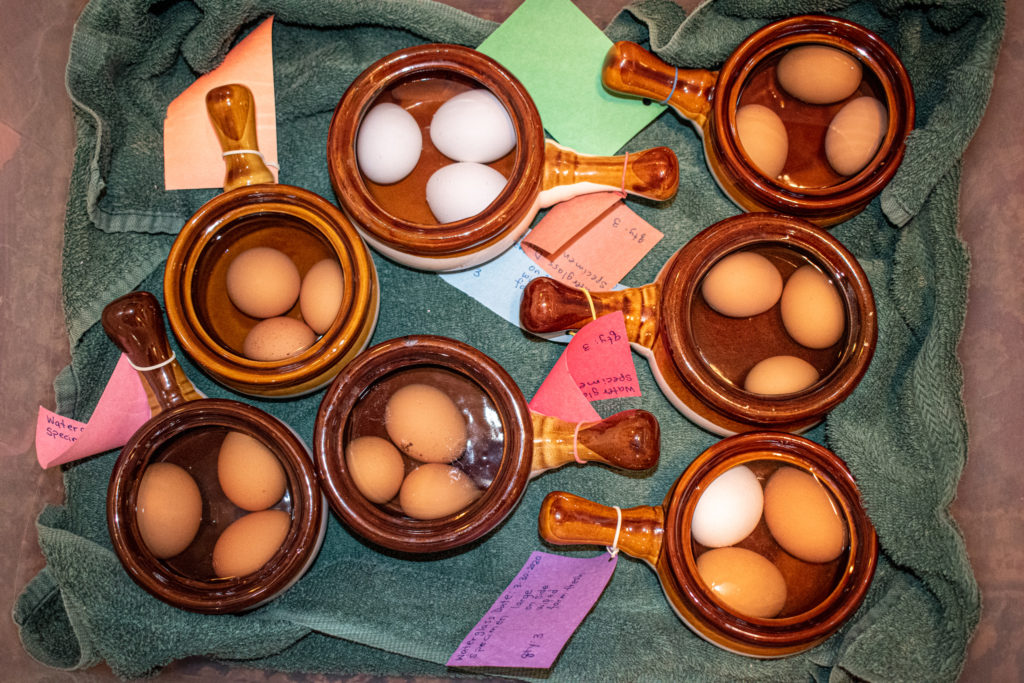
Today, at the six month mark, we opened another round of waterglassed eggs from each of our seven test categories. Considering that Mother Earth New’s original egg preservation tests that inspired our own experimentation said that waterglassing only produced reliable results for a five month time frame, I’d say that we’re doing pretty well even now at the six month mark. Our conditions are a little cooler than MEN’s which may help with the storage life.
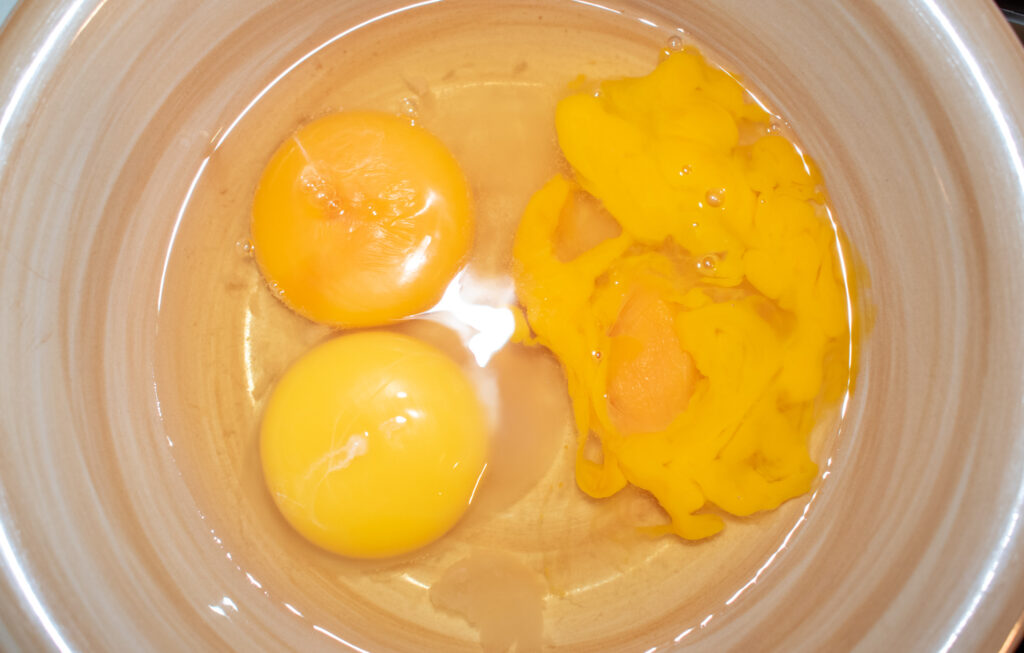
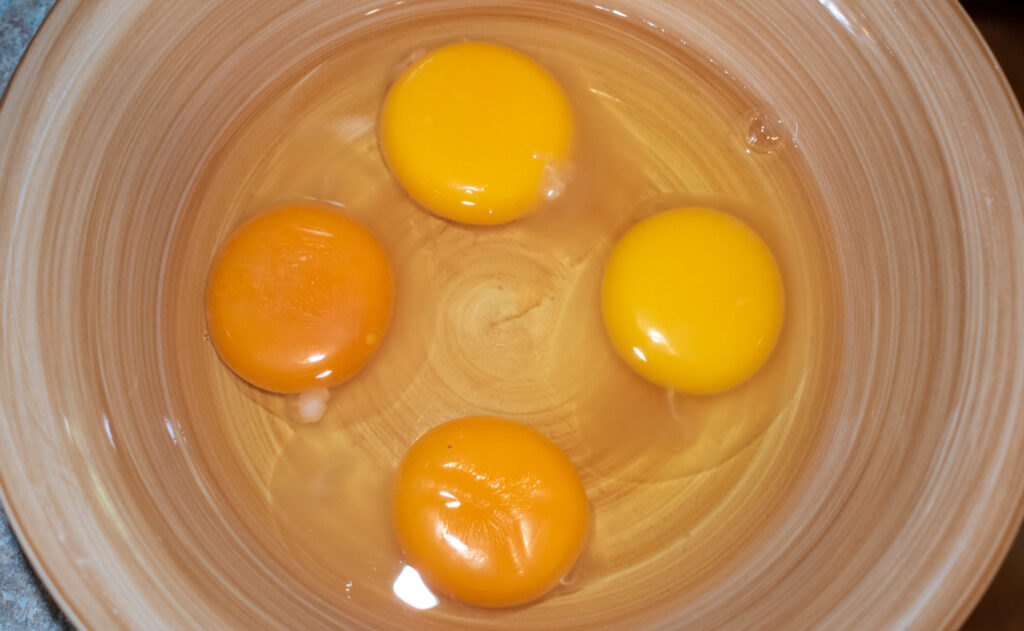
This test point, like the 3 month mark also yielded 3 fails and 4 pass cases, although there were several surprise category swaps among the test conditions.
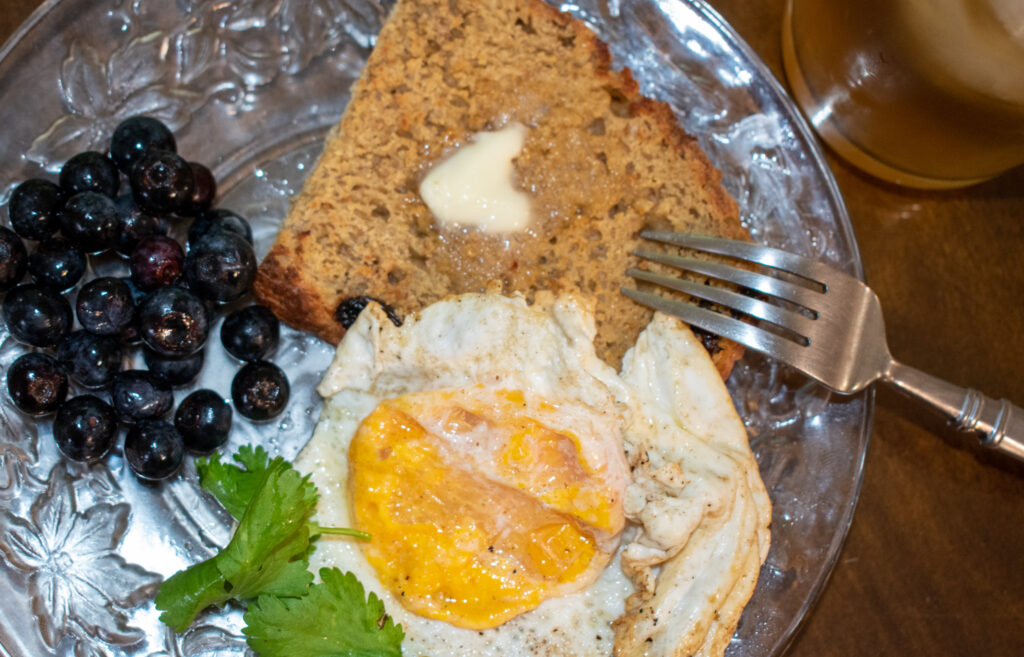
Waterglass “Pass”
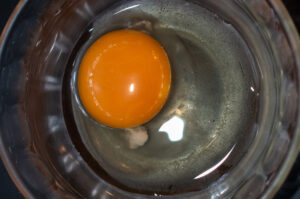
The winner this time around for freshest looking egg came from the green tag, bowl, which, if you remember from our initial waterglass experiment post, were small, washed, farm fresh eggs which were stored on their side. This test condition failed at the three month check point but only because of a blood clot in the egg, not related to the waterglass technique. The yolk was firm and orange and stood up tall. There was a little separating of whites into runnier and firmer portions, but this one went in the “pass bowl”.
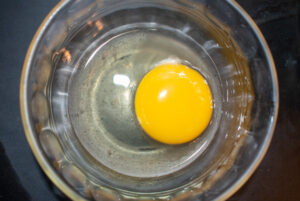
The other test conditions joining the green tag were pink and orange tags and, surprisingly! the brown tag. The brown tag eggs were bottom of the shelf, store bought eggs. The waterglass in this bowl has reached a very gummy consistency but this time around the egg had no visible cracking like the three month egg did. While the yolk was pale and the white a little runny, there was no off-smell and we had no trouble cooking and eating it!
Waterglass “Fail”
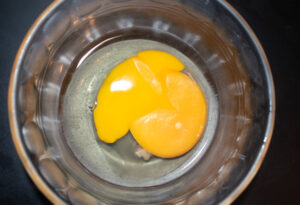
The worst case egg in this test run was the red tag egg (small, “dirty”, on-side, farm fress egg). The yolk in this egg was very runny (I wasn’t able to keep it in tact cracking it into the bowl) an there was a noticeable, though not overpowering “off” smell.
The other test conditions joining the red tag in the fail bowl were the blue and the purple tags. These ones both looked OK but they were a little questionable on the “sniff test”. This may be subjective as the wife didn’t notice an off smell on these.
Summary
So, in conclusion, the larger eggs (even the farm fresh ones) seem to be struggling with quality consistency. The smaller farm fresh eggs, whether washed or only wiped seem to be consistently doing well. And the surprise showing in the “holding their own” category are the store-bought eggs that were waterglassed!
The number of egg test conditions that swapped “pass – fail” status between month three and month six would indicate that wisdom cracks waterglass eggs into a separate bowl before adding to your omelette or cake batter…
Stay tuned for a final update at the one year mark!
Lab Notes
Green (pass) – Best in show, firm yolk and mostly firm whites.
Blue (fail) – Looked pretty good but had a bit of an “off” smell.
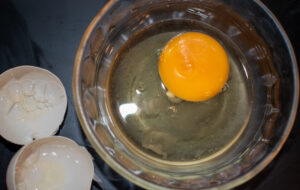
Purple (fail) – This one had some texture issues with the whites and there were some strange “bubbles” inside the egg when it was opened.
Brown (pass) – Pale yolk but holding up well. Slightly runny whites but no discernible smell.
Red (fail) – Very fragile yolk, runny whites and a smell even the wife did not approve of.
Orange (pass) – No issues.
Pink (pass) – No issues.
